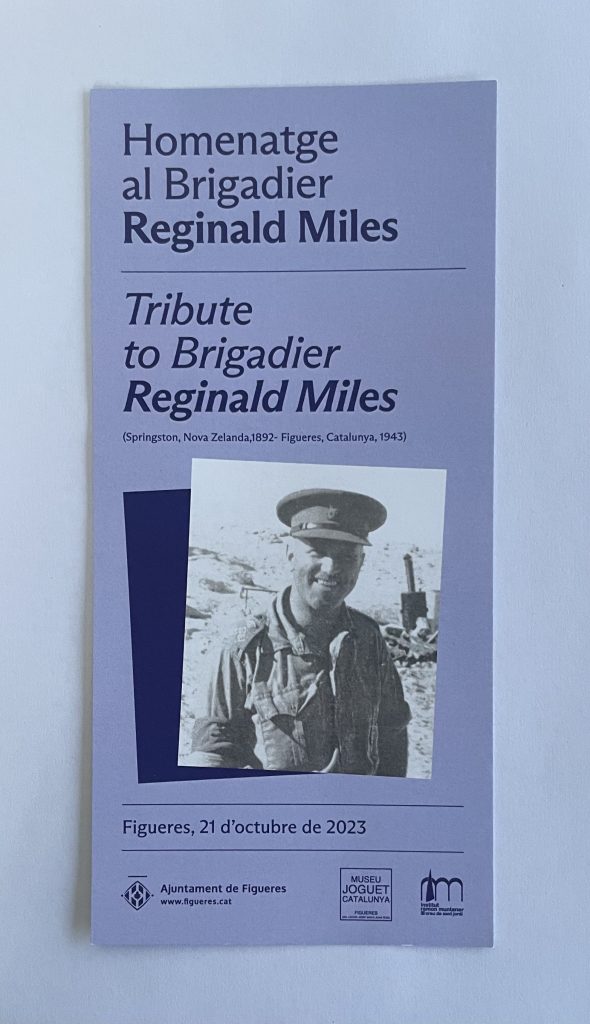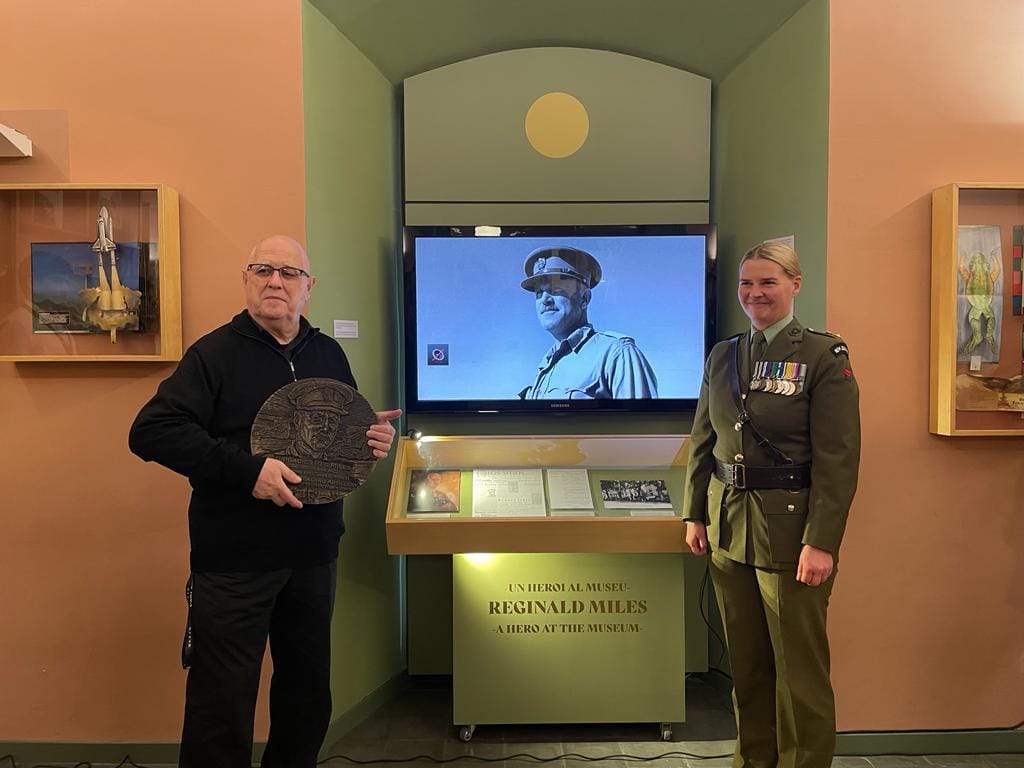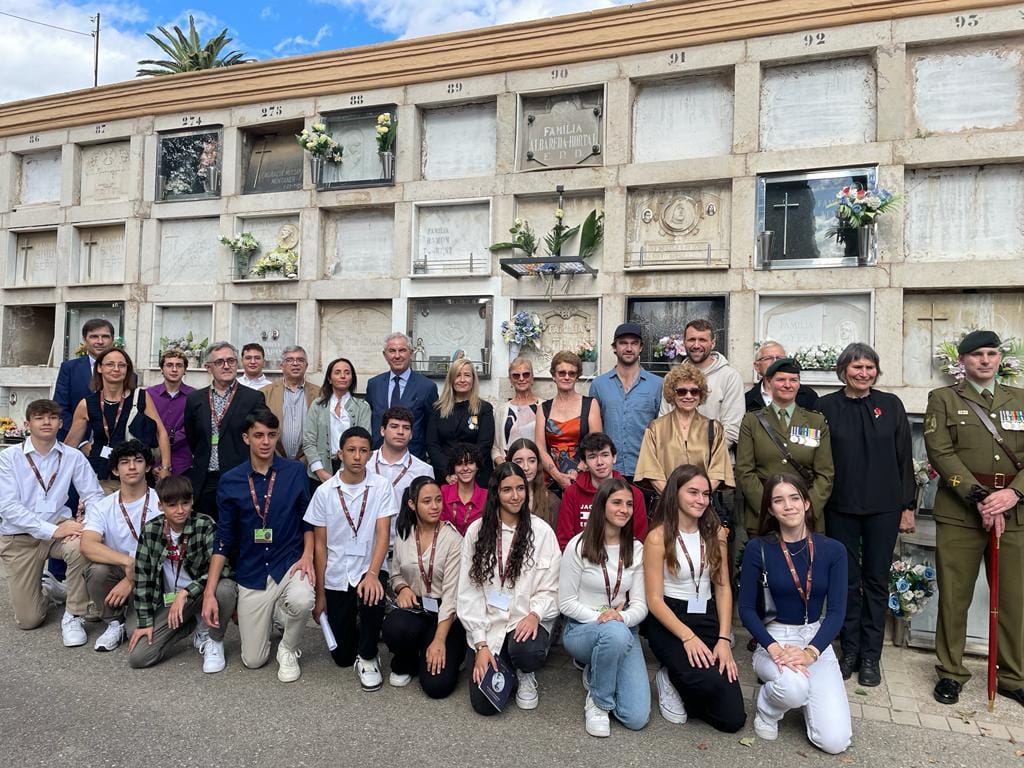
This tribute for Reg Miles who died in Figueres on 20 October 1943, was a fitting and dignified occasion. All credit to those involved in planning the day with such care, especially the students of Ramon Muntaner High School who played a major role at all stages. I had spent time with them the previous day, the actual 80th anniversary of Reg Miles’ death, when they welcomed those of us who had arrived from New Zealand to an afternoon tea and a tour of their school. One of their members, Jan Giró, was the MC of the event on the 21st, starting in the City Hall.
In the first photo below, local historian Alfons Martínez described the political environment in Figueres in 1943 when its recovery from the civil war was prolonged by World War II. It was then a dark grey shady dangerous city, a kind of Casablanca without Rick Blaine or Ilsa Lund, a perfect place for tragedies, one of which was the death of Brigadier General Reginald Miles. It is generally accepted in Figueres today that Miles was a victim of circumstances and my research confirms this. His ‘farewell letter’ explains his intentions but there remain questions, contradictions and cover-ups which continue to mystify researchers. As far as I could tell, with help from translations from Catalan to English, all the Figueres speakers of the day embraced what they saw as a tragedy. They spoke of Miles in both human and heroic terms.
I then spoke about Reg Miles’ life and character. I should have added that, as a modest man, he would have been astounded and perhaps embarrassed by this event.
Teachers of Ramon Muntaner High School Anna Llobet, Joan Manel Soldevilla and three of their students spoke about the podcast they published earlier in the year, which led to the tribute.
Of special significance was the tribute by New Zealand Ambassador to Spain, Tara Morton. This was the first time any representative of the New Zealand Government had officially paid tribute to Miles in Figueres. She spoke of the significance of Brigadier Miles as one of New Zealand’s great war heroes. On behalf of the New Zealand Government, she thanked the organisers for the chance to properly honour him.

 I was particularly taken with how the mayor of Figueres, Jordi Masquef, spoke of the city’s commitment to preserve its history, to face the past in order to know who we are and how to live in the future. ‘Reginald Miles is a legend in Figueres’, he said, and he promised he would not be forgotten.
I was particularly taken with how the mayor of Figueres, Jordi Masquef, spoke of the city’s commitment to preserve its history, to face the past in order to know who we are and how to live in the future. ‘Reginald Miles is a legend in Figueres’, he said, and he promised he would not be forgotten.
At the Toy Museum of Catalunya, formerly Hotel Paris where Reg Miles died in circumstances that are still today mysterious, permanent and temporary displays were opened. Lieutenant Colonel Sandra Patterson, RNZA, Commanding Officer 16 Field Regiment and Warrant Officer 1st Class Richard Bray, RNZA, Regimental Sergeant Major 16 Field Regiment delivered the bronze plaque commissioned especially for the exhibition.
From there, the party moved on to the cemetery where there were more speeches, floral and musical tributes. There was nothing perfunctory about any of this.
It was a privilege to take part in the occasion alongside Reg Miles’ family and other New Zealanders present. We received most generous hospitality, ending with an excellent lunch.
See also:








